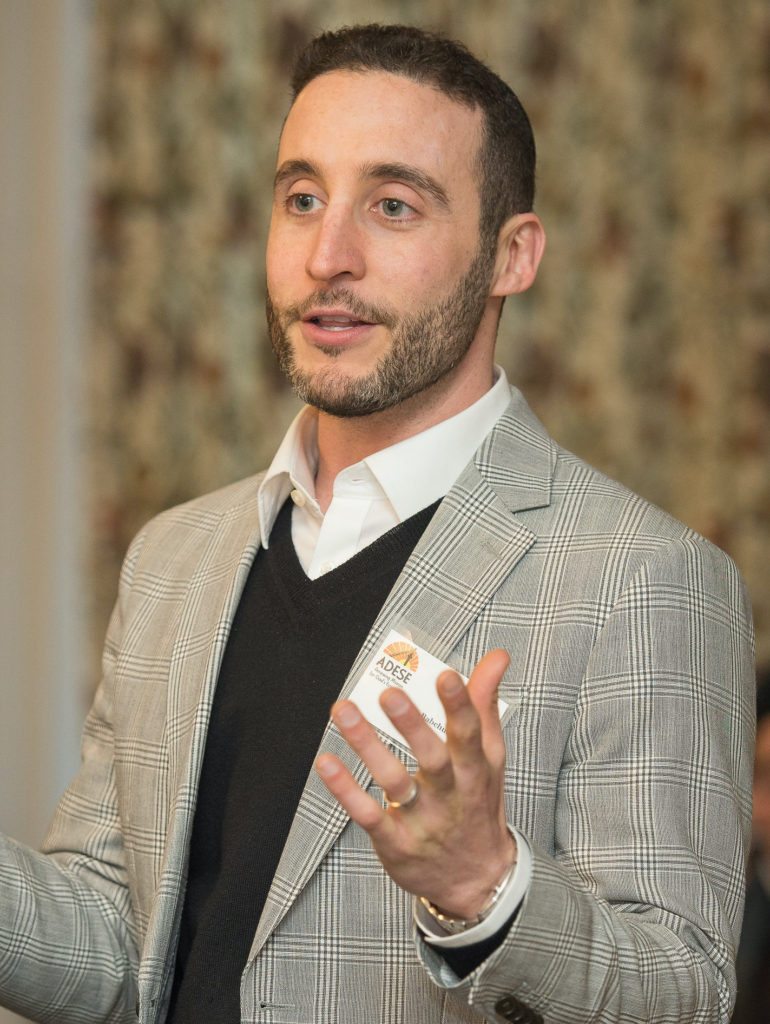A few weeks ago, I set out on a trip to the grocery store with one purpose in mind: buy salmon for dinner. Of course, there’s no such thing as a trip to the grocery for one item when there are four mouths to feed in the house, so naturally, I added a few things to the list…Fifteen or twenty items later, my list was complete, and I was out the door.
When I got in the car, the display immediately notified me that my iPhone was paired, reminding me that I owed a phone call to a good friend. So I called him up, shifted into reverse, and made my way to the grocery store.
As I caught up with my friend and waved to a few people I recognized in the store, I casually walked the aisles and picked up the apples and bananas, peanut butter, milk, and whatever else I remembered from the list (which I had left on the kitchen counter). After about a half hour of shopping/talking, I was ready to check out. I bashfully pointed to my phone and mouthed “I’m sorry” to the cashier, who smiled back but didn’t seem too disappointed not to be talking to me. I bagged my stuff, swiped my card, sloppily signed my name, and got back into the car.
When I finally finished the call and got home, I started unpacking the groceries. Apples to the crisper, bananas onto the stand, PB in the pantry, and salmon…salmon…salmon…is still at the store because I completely forgot to buy it.
For all the appeal of convenience and efficiency that multitasking offers, it rarely – if ever – delivers. In fact, recent studies done at Stanford University and the University of London have shown that multitasking severely limits brain function, and “high multitaskers had less brain density in the anterior cingulate cortex, a region responsible for empathy as well as cognitive and emotional control.”
My favorite takeaway, though, is:
“Participants who multitasked during cognitive tasks experienced IQ score declines that were similar to what they’d expect if they had smoked marijuana or stayed up all night. IQ drops of 15 points for multitasking men lowered their scores to the average range of an 8-year-old child.”
Multitasking drops the IQs of full-grown men to the range of 8-year-old kids. So should I be surprised that I forgot the salmon? I’m lucky I even made it out of there in one piece!
Beginning after that fateful trip to the store, I quit. No more shopping while talking. No more texting while walking. No more watching TV while answering emails. No more multitasking while meeting. No more parenting while doing anything other than giving my full attention to those who need – and deserve – it most.
How? So far, these three strategies have helped me in my unitasking quest:
1. Set aside the task
Literally, take it out of its context if that context tends to lead to distractions or temptations to multitask. If you usually type emails while sitting in front of the TV, take your laptop into the other room. You’ll finish twice as fast, and the emails won’t read like the work of an 8-year-old.
Stretch your attention span. For me, daily meditation has started to expand my ability to focus, but there are myriad ways to do it. Find yours and commit to it.
2. Make a “bike rack” for your stray thoughts
No matter how focused you are on your task, your mind is bound to remind you of the many other things you could/should be doing simultaneously. It might give you a great idea or just nag you about something that needs to get done. Carry a small notebook with you, or – failing that – use a notes app on your phone. Jot down what you need to remember, and put the notebook or the phone away.
3. If all else fails, just put down the phone
At least It’s a start and could save you a trip back to the grocery store.

Rabbi Elan Babchuck is committed to leaving behind a world that is more compassionate and connected than the one he found. In pursuit of that commitment he serves as the Executive Vice President at Clal, the National Jewish Center for Learning and Leadership, and the Founding Executive Director of Glean Network, which partners with Columbia Business School. He was ordained in 2012, and earned his MBA that year, as well.
A sought-after thought leader, he has delivered keynotes at stages ranging from TEDx to the US Army’s General Officer Convocation, published in The Atlantic, The Guardian, Washington Post, and Religion News Service, has a column for The Wisdom Daily, contributed to Meaning Making – 8 Values That Drive America’s Newest Generations (2020, St. Mary’s Press) and is the co-author of the forthcoming book Picking Up the Pieces: Leadership After Empire (2023, Fortress Press).
He also serves as:
a Founding Partner of Starts With Us, a movement to counteract toxic polarization in America,
a Research Advisory Board Member of Springtide Research Institute, which focuses on spirituality, mental health and Gen Z,
a founding board member of Beloved Network, a network of startup Jewish communities, and
a member of the Board of Advisors of the Changemaker Initiative.
He lives in Providence, Rhode Island with his wife, Lizzie Pollock, and their three children: Micah, Nessa, and Ayla. In his spare time, he finds sanctuary while climbing rock walls around New England and tending to his backyard garden.

